What to do - cistern full of trash
Debbie Downer
10 years ago
Related Stories
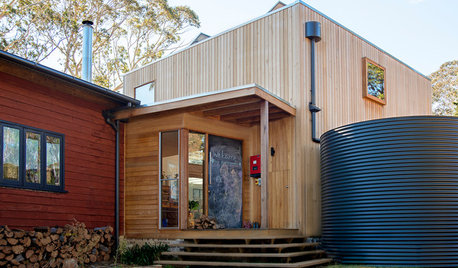
SAVING WATERIs a Rainwater Cistern Right for You?
These extra-large containers reduce runoff and save on the use of potable water for the landscape
Full Story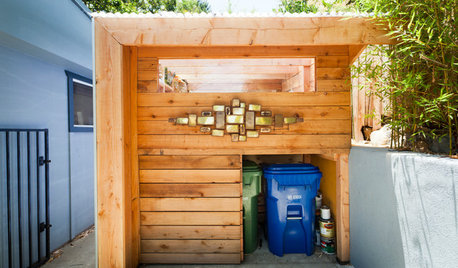
CURB APPEALHouzz Call: How Do You Hide Your Trash?
No one wants to see those trash and recycling bins. So where do you stash them while you wait for the garbage truck? Show us your designs!
Full Story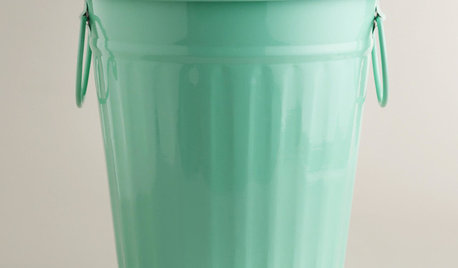
PRODUCT PICKSGuest Picks: Tame the Trash in Style
Throw some good looks into your kitchen and bath with wastebaskets and bins that go beyond the standard
Full Story
SMALL HOMESCan You Live a Full Life in 220 Square Feet?
Adjusting mind-sets along with furniture may be the key to happiness for tiny-home dwellers
Full Story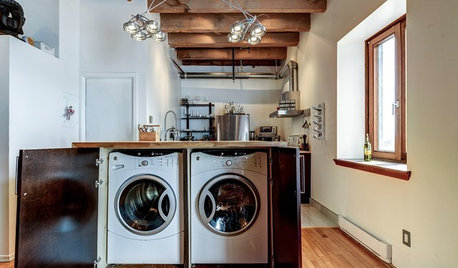
LAUNDRY ROOMSA Kitchen Laundry Cabinet Full of Surprises
A little DIY spirit allowed this homeowner to add a washer, dryer, kitchen countertop and dining table all in one
Full Story
GARDENING GUIDESGet on a Composting Kick (Hello, Free Fertilizer!)
Quit shelling out for pricey substitutes that aren’t even as good. Here’s how to give your soil the best while lightening your trash load
Full Story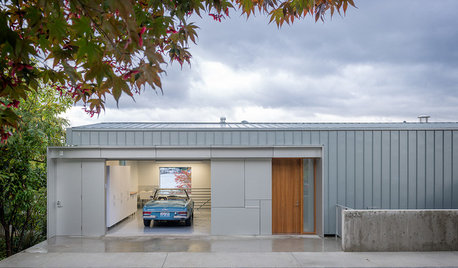
MOST POPULAR10 Reasons to Get Rid of More Clutter
From a calmer mind to a more workable closet, the benefits of streamlining are just a few trash bags away
Full Story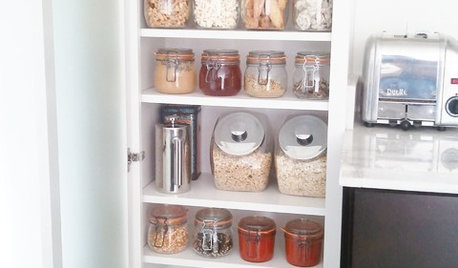
HEALTHY HOME6 Tips From a Nearly Zero-Waste Home
Lower your trash output and increase your quality of life with these ideas from a mom who did it to the max
Full Story
STUDIOS AND WORKSHOPSA Compact Shed Makes Room for Storage, Creativity and Style
With a tidy workspace, neatly hidden trash cans and even a mini patio, this inspired shed meets everything on a creative couple's wish list
Full Story
MOVINGRelocating Help: 8 Tips for a Happier Long-Distance Move
Trash bags, houseplants and a good cry all have their role when it comes to this major life change
Full StoryMore Discussions









toxcrusadr
southerncanuck
Related Professionals
Home Remodeling · New Bern General Contractors · Alhambra General Contractors · Enfield General Contractors · Fort Pierce General Contractors · Makakilo General Contractors · Muskogee General Contractors · New Carrollton General Contractors · Peoria General Contractors · Rocky Point General Contractors · Valley Station General Contractors · Villa Park General Contractors · Lake Station Home Builders · Commerce City Home Builders · Kingsburg Home Builderstwoheartsgrowing
jcalhoun
apg4
toxcrusadr